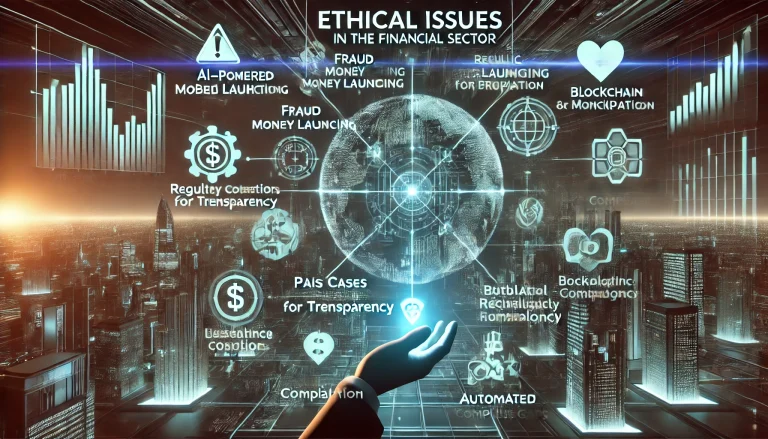Problem Statement :
In today’s hyper-connected world, the reputation of financial firms is under constant scrutiny, with social media, online reviews, and public perception playing a critical role in shaping how these institutions are viewed by customers, investors, and regulators. A single negative incident, such as a data breach, unethical behavior, or poor customer service, can quickly escalate into a crisis that spreads rapidly across digital platforms. Within hours, a financial firm’s reputation can suffer significant damage, leading to loss of customer trust, declining stock prices, and regulatory penalties.
The rapid dissemination of information through social media and online platforms means that firms must be vigilant in monitoring public sentiment. Negative news, customer complaints, or even misinformation can gain traction quickly, making it imperative for firms to have robust reputation management strategies in place. Traditional public relations tactics are no longer sufficient in this environment; instead, firms must adopt a proactive approach that includes real-time monitoring, rapid response capabilities, and transparent communication.
Moreover, the growing demand for corporate social responsibility (CSR) and ethical business practices has heightened expectations from customers and stakeholders. Financial firms are now expected to not only deliver financial performance but also demonstrate their commitment to social and environmental issues. Failing to meet these expectations can lead to negative public perception and long-term reputational damage.
To navigate these challenges, financial firms must develop comprehensive reputation management strategies that leverage technology to monitor online sentiment, engage with customers and stakeholders transparently, and respond swiftly to potential crises. By doing so, they can build and maintain trust, protect their brand, and ensure long-term success in the digital age.
Pain Points:
- Rapid Spread of Negative News: Social media and online platforms can amplify negative incidents, quickly damaging a firm’s reputation.
- Reputation Vulnerability: Financial firms are more exposed to public scrutiny, with a single incident potentially leading to widespread reputational harm.
- Misinformation: False or misleading information can spread rapidly online, complicating efforts to maintain an accurate public image.
- Customer Complaints: Negative reviews and complaints on social media can quickly gain attention, affecting public perception.
- Data Breaches: Cybersecurity incidents can erode trust and lead to severe reputational damage.
- Ethical Concerns: Unethical practices or failures in corporate social responsibility can lead to public backlash and loss of trust.
- Regulatory Scrutiny: Regulatory actions and fines can generate negative publicity and harm a firm’s reputation.
- Lack of Transparency: Failure to communicate transparently during a crisis can worsen public perception and erode trust.
- Slow Response Times: Delayed responses to negative incidents can exacerbate the impact on a firm’s reputation.
- Evolving Public Expectations: Growing demand for ethical and socially responsible practices requires firms to continuously align with public values.

Future Vision:
The future of reputation management in the financial sector will be defined by the integration of advanced technologies, proactive engagement strategies, and a commitment to transparency. Financial firms will increasingly rely on AI-driven tools to monitor online sentiment in real-time, allowing them to detect potential issues before they escalate into full-blown crises. These tools will analyze data from social media, news outlets, and online reviews to provide firms with actionable insights, enabling them to respond swiftly and effectively.
Proactive engagement with customers and stakeholders will become a cornerstone of reputation management. Firms will prioritize open communication, regularly engaging with their audiences through social media, blogs, and other digital channels. This will not only help build trust but also create a more resilient brand that can withstand negative incidents.
Transparency will be critical in managing reputation in the digital age. Firms that are transparent about their actions, values, and responses to crises will be better positioned to maintain public trust. This includes providing clear, honest communication during crises, acknowledging mistakes, and demonstrating a commitment to resolving issues.
Furthermore, the role of corporate social responsibility (CSR) will continue to grow, with firms expected to lead on social and environmental issues. By aligning their business practices with the values of their customers and stakeholders, financial firms can strengthen their reputations and build long-term loyalty.
Overall, the future of reputation management in the financial sector will require a combination of technology, transparency, and proactive engagement. Firms that embrace these strategies will be better equipped to navigate the challenges of the digital age, protecting and enhancing their reputations in an increasingly connected world.
Use Cases:
- AI-Driven Sentiment Analysis: Implementing AI tools to monitor and analyze online sentiment in real-time, detecting potential reputation risks early.
- Crisis Communication Platforms: Utilizing platforms that facilitate rapid and transparent communication during crises, ensuring consistent messaging across channels.
- Social Media Monitoring: Deploying tools that track social media activity, identify trends, and alert firms to potential issues before they escalate.
- Proactive Customer Engagement: Engaging with customers regularly through social media, blogs, and other digital channels to build trust and address concerns.
- Transparency Dashboards: Creating public dashboards that showcase a firm’s CSR activities, ethical practices, and responses to incidents.
- Reputation Recovery Programs: Developing programs that focus on rebuilding trust and restoring reputation after a crisis, including public apologies and corrective actions.
- Data Breach Response Plans: Establishing comprehensive plans for responding to data breaches, including communication strategies and customer support.
- Ethical Business Audits: Conducting regular audits of business practices to ensure alignment with ethical standards and public expectations.
- Influencer Partnerships: Collaborating with trusted influencers to promote positive messaging and reinforce the firm’s reputation.
- Employee Advocacy Programs: Encouraging employees to act as brand ambassadors, sharing positive stories and reinforcing the firm’s values online.
Target Users and Stakeholders:
- Target Users:
- Corporate Executives: Age 35-65, both genders, responsible for overseeing reputation management and crisis response strategies.
- Marketing and PR Professionals: Age 30-60, both genders, focused on managing online perception and public relations in the digital age.
- Customer Service Teams: Age 25-50, both genders, engaging with customers and addressing concerns on social media and other platforms.
- Stakeholders:
- Customers: Seeking transparency, ethical behavior, and responsive communication from financial firms.
- Regulators: Ensuring that financial firms comply with legal and ethical standards, protecting consumers and markets.
- Investors: Interested in the long-term reputation and stability of the firms they invest in.
- Employees: Concerned about the reputation of their employer and its impact on their careers and workplace culture.
- Public and Media: Monitoring the actions of financial firms and influencing public perception through news and social media coverage.
Key Competition:
- Hootsuite: A social media management platform that helps firms monitor online activity, engage with audiences, and manage their reputation.
- Sprout Social: Provides social media analytics and engagement tools that allow firms to track sentiment and respond to customer feedback.
- Brandwatch: Offers AI-powered social media monitoring and analytics to help firms understand public perception and manage their reputation.
- Reputation.com: Specializes in reputation management, offering tools for monitoring online reviews, social media, and public sentiment.
- Meltwater: Provides media monitoring and analytics services, helping firms track news coverage and social media conversations to protect their reputation.
Products/Services:
- Hootsuite Social Listening: Tools for monitoring social media activity and sentiment, enabling firms to respond to issues quickly.
- Sprout Social Engagement: A platform for managing social media interactions, tracking sentiment, and engaging with customers.
- Brandwatch Analytics: AI-driven analytics that provide insights into public perception and identify potential reputation risks.
- Reputation.com Review Management: Services that help firms manage online reviews, respond to customer feedback, and improve their online reputation.
- Meltwater Media Monitoring: Tools for tracking news coverage, social media conversations, and online sentiment, allowing firms to manage their reputation proactively.
Active Startups:
- Awario: A social listening tool that monitors mentions of a brand across the web and social media, providing real-time alerts and sentiment analysis.
- Mention: Offers social media monitoring and listening tools that track brand mentions and sentiment, helping firms manage their online reputation.
- Talkwalker: Provides social media analytics and monitoring, enabling firms to track public sentiment and respond to potential reputation risks.
- NetBase Quid: A consumer and market intelligence platform that uses AI to analyze social media data and monitor brand reputation.
- YouScan: Specializes in visual analytics and social media monitoring, helping firms track online conversations and manage their reputation.
Ongoing Work in Related Areas:
- AI in Reputation Management: Developing AI-driven tools that automate sentiment analysis and provide real-time insights into public perception.
- Transparency in Crisis Communication: Innovating in communication strategies that prioritize transparency and honesty during crises.
- CSR Reporting and Transparency: Advancing tools that help firms report on their corporate social responsibility activities and align with public values.
- Ethical Audits and Compliance: Creating platforms that facilitate regular audits of business practices to ensure ethical behavior and compliance with regulations.
- Data Privacy and Security: Enhancing tools and strategies for protecting customer data and responding effectively to data breaches.
- Influencer and Public Relations Strategies: Innovating in influencer partnerships and PR strategies that help firms build and maintain a positive reputation.
- Social Media Crisis Management: Developing platforms and tools that enable rapid and effective responses to social media crises.
- Customer Engagement and Support: Creating solutions that facilitate proactive and responsive customer engagement on social media and online platforms.
- Visual Analytics for Reputation Monitoring: Advancing visual analytics tools that analyze images and videos shared online to monitor brand perception.
Recent Investment:
- Awario: Raised $3 million in Series A funding in March 2021, led by Venture Friends, to expand its social listening and sentiment analysis platform.
- Mention: Secured $8 million in Series B funding in July 2020, led by eFounders, to grow its social media monitoring tools and customer base.
- Talkwalker: Acquired by Marlin Equity Partners in October 2020 for an undisclosed amount, with plans to invest in expanding its social media analytics platform.
- NetBase Quid: Raised $20 million in Series C funding in January 2021, led by Thomvest Ventures, to enhance its AI-driven consumer intelligence platform.
- YouScan: Secured $4 million in Series A funding in June 2021, led by VNV Global, to develop its visual analytics and social media monitoring services.
Market Maturity:
The market for reputation management tools and services is maturing rapidly as financial firms recognize the importance of protecting their brand in the digital age. Established players like Hootsuite and Sprout Social dominate the market, offering comprehensive social media management and monitoring solutions. However, the rise of AI-driven startups and innovative platforms is reshaping the landscape, providing firms with more advanced tools for real-time sentiment analysis, crisis communication, and proactive engagement. As the market continues to evolve, the integration of AI, transparency, and proactive reputation management will be key to success in maintaining trust and credibility in a hyper-connected world.
Summary :
In the digital age, the reputation of financial firms is more vulnerable than ever to the rapid spread of information through social media, online reviews, and public perception. Negative incidents, such as data breaches or unethical practices, can quickly escalate into crises that damage a firm’s reputation and erode customer trust. To navigate these challenges, financial firms must adopt proactive reputation management strategies that leverage technology, transparency, and engagement.
AI-driven tools for sentiment analysis and social media monitoring are becoming essential for detecting potential reputation risks early. These tools enable firms to respond swiftly and effectively to negative incidents, preventing them from escalating into full-blown crises. Transparent communication is also critical, with firms expected to provide clear, honest messaging during crises and demonstrate a commitment to resolving issues.
Corporate social responsibility (CSR) plays an increasingly important role in reputation management, with customers and stakeholders demanding ethical business practices and social responsibility from financial firms. By aligning their actions with public values and engaging proactively with customers and stakeholders, firms can build and maintain trust in a hyper-connected world.
As the market for reputation management tools continues to mature, financial firms must embrace innovation and proactive strategies to protect their brand and ensure long-term success. Those that do will be better equipped to navigate the complexities of reputation management in the digital age, maintaining credibility and trust in an increasingly connected and transparent world.



